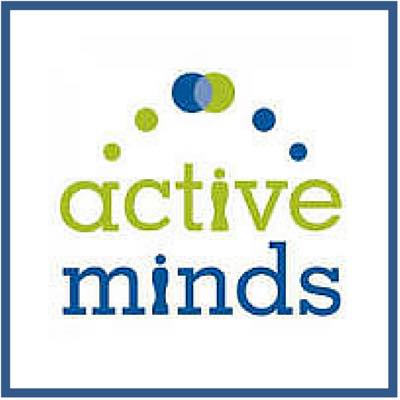Active Minds aims to end the stigma
By Caroline Kinne, Active Minds Columnist
I have a medical condition called Polibar’s Syndrome. If it’s not caught early on, it can sometimes have devastating effects similar to those of some brain tumors. But luckily for me, my parents took me to the doctor right away, and I got better. I still have to take medicine every day, but I am used to it by now. After all, a lot of people have to take medication every day.
For those of you who do not know what Polibar’s Syndrome is, it is basically a problem with the chemicals in one’s brain that affect neurotransmitters. My medicine helps to correct the chemical imbalance. When gone untreated, Polibar’s can lead to sleep issues, unintentional weight loss or gain, fatigue, and an inability to focus. It can also lead to death.
If you are about to look up Polibar’s Syndrome because you realize it is not real, do not bother. Though it is not called Polibar’s Syndrome, everything else I just said about my illness is true. Here is what I didn’t say:
I have bipolar disorder.
If you did not see that coming, I am guessing you had a reaction. I would bet that when you found out that I have a “mental illness” rather than a physical one, you judged it more harshly. I understand why. It’s so ingrained in our culture to think of mental illness as its own category, but the thing is, the mind is a part of the body. We have to stop viewing mental illness as though the person suffering is possessed by outside forces. It is all physical. Think about this seriously: if I told you I had the same symptoms but that they were caused by a brain tumor instead, how would you have reacted to that? I did not—nor does anyone—choose to have a mental illness. So why then is there still such a stigma against mental health issues and those who suffer from them?
October 5th is the National Day Without Stigma, and the Active Minds club will be working that day on activities to increase awareness about mental health. But why stop there? If a friend tells you that they are suffering from depression, anxiety, or anything of the like, do not brush it aside. If your friend broke a leg, you would not hesitate to help them carry their books to class. You would not get mad at them for not being able to go on a run with you. Everyone has something they have to deal with, and no one should have to go it alone. Your friend might just need someone to talk to. And if talking about it isn’t enough, there are multiple places on campus for them to get further help. If you are the one struggling, don’t be afraid to reach out—most people want to help. And there is no more shame in getting help for a mental illness than there is in seeing a doctor because you broke your leg.
Help break the silence. Help end the stigma. Help your friends, because you might not know what they are really going through.

